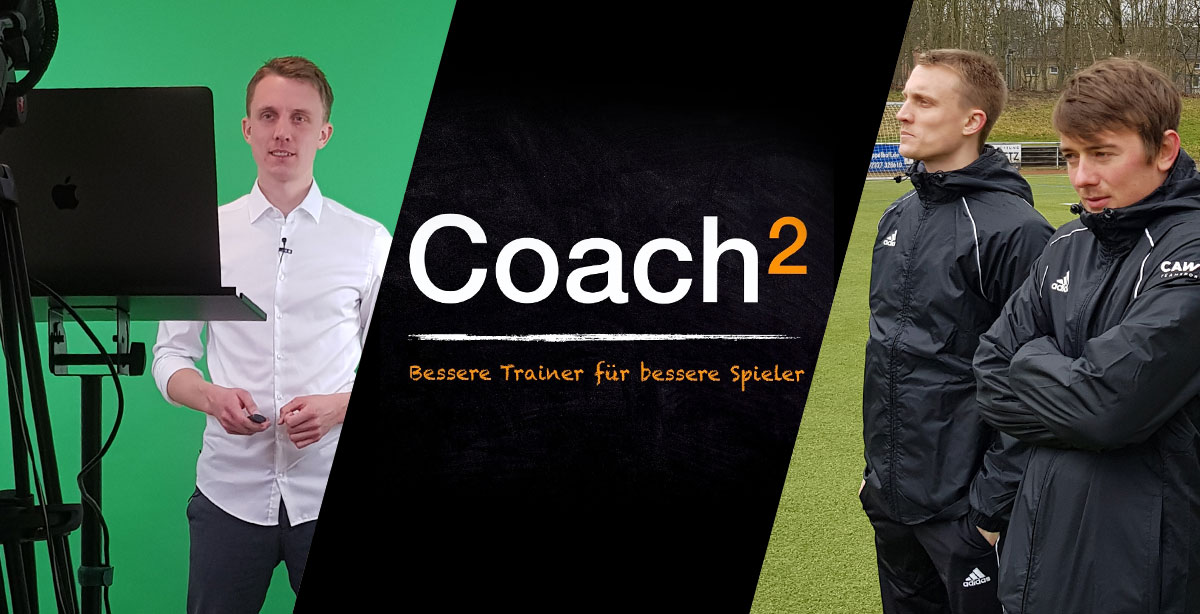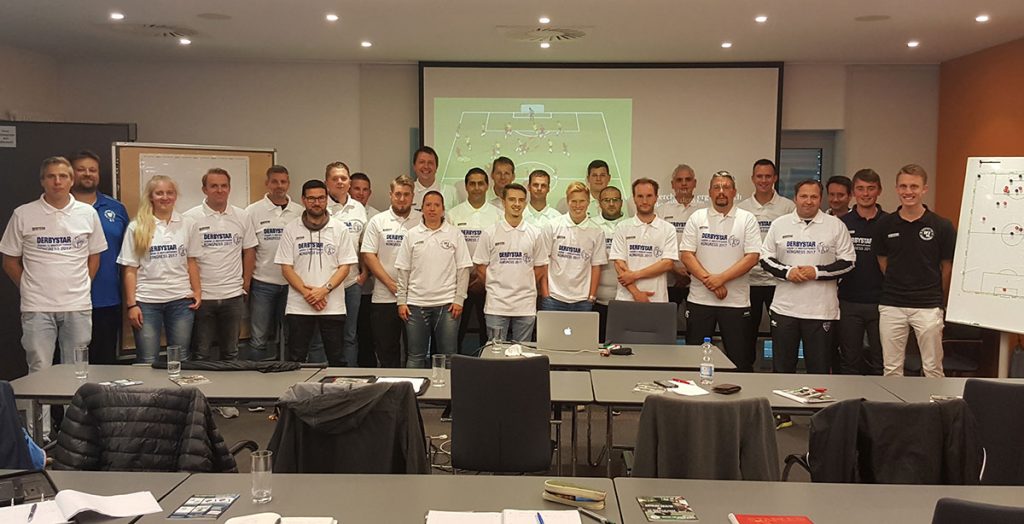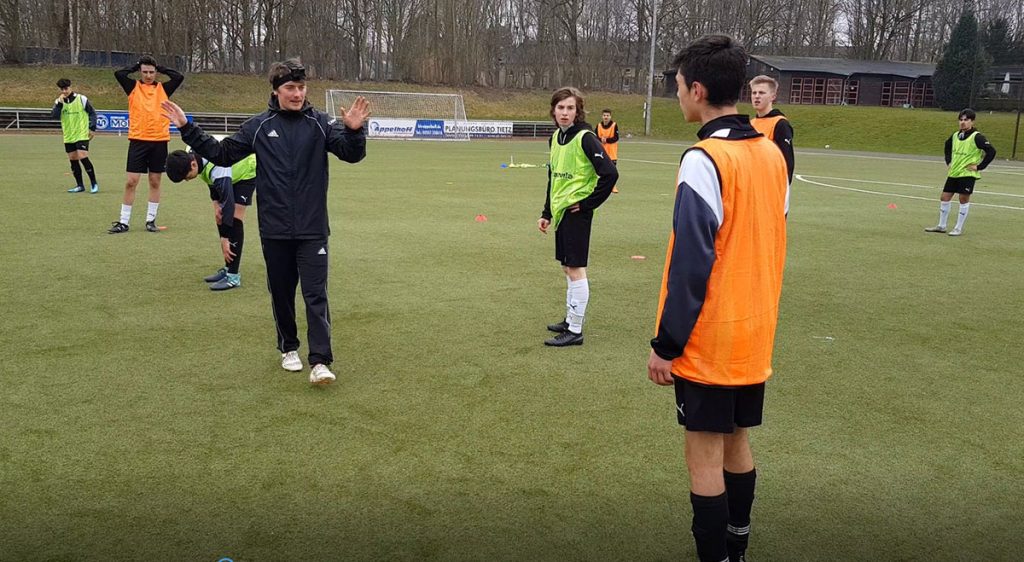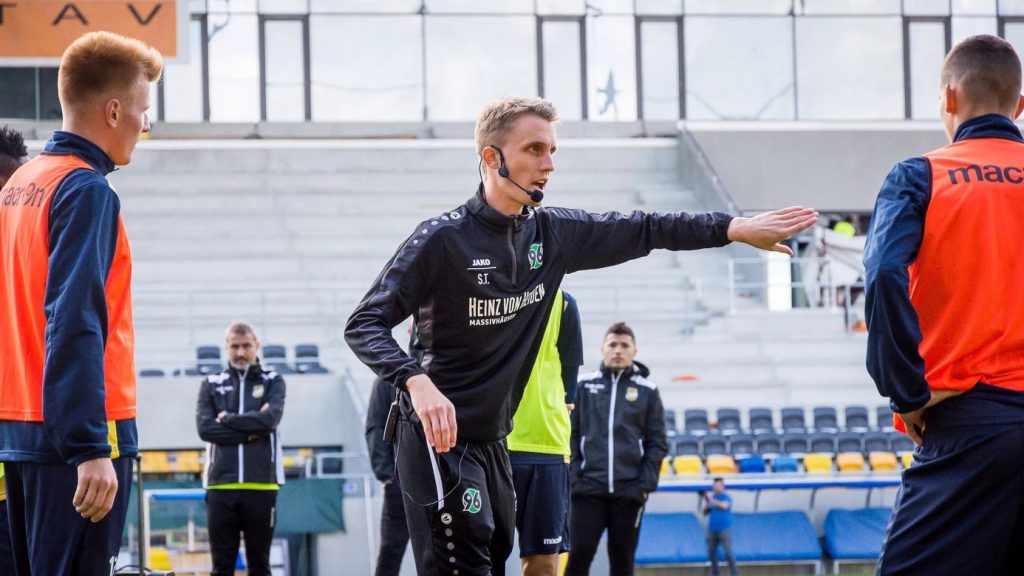
Steven Turek and Jonas Stephan about coaching and their online course Coach²
Today we spoke with Jonas Stephan and Steven Turek, about their online course Coach², their work as a coach and what according to them are the future challenges for coaches!
Soccer Coaches Academy: Hello Jonas, Hello Steven. On the one hand, you’ve both been coaches for a very long time, but at the same time you’re both still very young. How was your way into paid football?
Jonas Stephan: A mixture of a lot of interest in the game and of course a little bit of luck. After school everything was actually geared towards being able to work in football. So: a sports science degree, many training sessions and of course the actual coaching practice in several amateur clubs.
Steven Turek: I can only confirm that. When you are in your early twenties, you just try to be as good a coach as you can. This includes, as Jonas said, studies, where we have done pretty much every job and project in football, but also a lot of self-study and also the exchange with many colleagues who sat down with us in a nice way.

SCA: You also started designing coaching media yourself early on …
ST: Yes exactly. From an idea to publish our project work, we finally came across the Institute for Youth Football and Peter Schreiner. This introduction eventually resulted in numerous booklets, DVDs and live seminars and congresses.
SCA: Now you could say: ‘Why do the young students presume to teach other colleagues’? But you’ve never seen it that way, have you?
JS: No, the thought never occurred to us. There is no other way to study, you find out more about a topic and then present it. This is exactly how we interpreted this actually freelance activity. Make yourself as smart as possible in one area and then pass it on.
ST: Exactly that. And you also have to consider: Anyone can grab a booklet or a DVD and say ‘here: this is complete nonsense’. So there is a kind of pressure behind it to put things neatly there and justify them. And that in turn helped us to make the content even better and more valid – without ever claiming to be complete. But I think that we make a contribution for the colleagues who are interested.
JS: This is actually a pretty cool cycle of researching different topics, communicating them to players and coaches – which is very different – and developing new topics.
The project Coach²

SCA: New topics? Like your new project Coach²? Tell the readers briefly what it’s all about and how you got there.
JS: Steven approached me over two years ago because he wanted to develop a new booklet. It should essentially be about mediation, i.e., how do I get content to the player more effectively so that he can call it up stably in the game. The topic then continued to develop and very quickly exceeded the scope of a booklet. At the same time, Peter Schreiner spoke for the first time about his idea of an online academy for coaches. Coach² emerged from the combination.
ST: Since then, we’ve started to process our content in a different way. We went away from classic PowerPoint slides that just show text. During that time, we also learned an awful lot about learning itself and presenting and first looked for an answer to the question ‘how people learn best’.
SCA: And the answer?
ST: It’s amazingly simple and complex at the same time. To give you an example, we recommend doing one lesson per day, eliminating all distractions like cell phones, and following the 25/5 method. So, study intensively for 25 minutes, then take a 5-minute break. Many studies have shown that people learn most effectively this way. Our lessons are structured accordingly – around 25 minutes of study, a 5-minute break and follow-up work.
JS: We have 30 such lessons in total. So, if coaches follow our recommendation, the complete course can be done in 6 weeks, doing it 5 days a week. To make Coach² easy to understand, we have divided the 30 lessons into 6 courses. In this way, a coach can specifically choose an entry point in a subject area that interests him or gradually complete all Coach² lessons.
SCA: Which subject areas do you cover with Coach²?
JS: Basically, everything you need as a coach. Coaches first learn basic learning mechanisms, which are then specifically applied to a sport in this case football/soccer. Then focal points for training forms are systematically developed, packed into training forms, combined into training units, and finally planned for the long term.
ST: These pure training modules are followed by courses on players and coaches. Questions such as ‘How can I classify players correctly?’, ‘Should strengths or weaknesses be improved?’, ‘What is flow? ‘ are answered in the player course. We both find the ‘Coach’ course particularly interesting for coaches. Because let’s be honest: Nobody in this world tells you how to lead yourself as a coach, how to make effective decisions, how to get creative and much more. So, this course is primarily our own interest.
SCA: So Coach² offers a complete coaching education, so to speak.
JS: You could say that. The lessons build on each other and always refer to each other. Things learned in the first lessons always come into play, even at the end. In addition, there is a task after each lesson, mostly interactive, i.e., something to try out, design yourself and teach. But classic multiple-choice tests are also anchored in the system and anyone who completes all Coach² lessons even receives a certificate as proof.

SCA: What are your favourite lessons or insights from Coach²?
ST: For me the best things were the parts that sound as simple as they were logical. It occurs to me spontaneously: Why should you take a break when you have a problem and take a walk in the woods, for example? Quite simply: anthropologically, we have always solved problems in nature. So, we have learned over thousands of years to solve problems in this setting. And we have an incredible number of such insights in Coach².
JS: Yes, it’s hard to pick something. The idea of game-related individual training, where small game forms are constructed in such a way that they train exactly one trigger, is incredibly exciting. In Germany there is a lot of talk about the lack of individualisation, but individual training is not just a coach and a player. That is why this lesson is very often includeded in exchanges with colleagues.
SCA: What is certainly of interest to many: How did you come up with the name Coach²?
JS: As the square of 2 already says, it’s about the coach potentiating himself and becoming the best coach he can be to guarantee the best possible training for the players. That’s the whole idea.
SCA: Finally, what do you think are the biggest challenges coaches will face in the future?
ST: I think it’s the same as it always was. We are still being asked to understand the game even better. See mechanisms more clearly and determine what the best solutions are. Second: their mediation. We believe relatively quickly that we know how training works. But when it comes to how players can unleash their full talent at the right moment, we know very little. And third: leadership. What do I really have to do to make players follow me? In the three areas we are not nearly as smart as we sometimes think, and they are exactly the areas where Coach² starts.
JS: Nothing to add to that.
